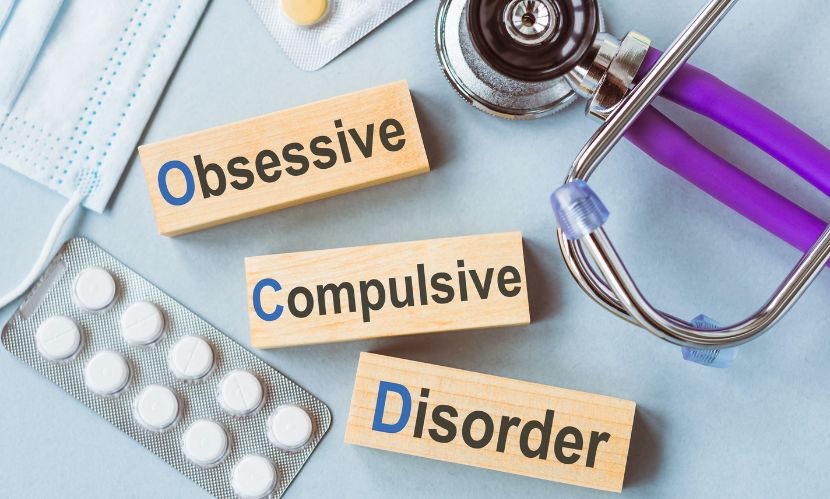OCD Treatment Market Analysis And Emerging Directions
Understanding the Obsessive Compulsive Disorder Treatment Market
What is the Obsessive Compulsive Disorder Treatment Market?
The Obsessive Compulsive Disorder (OCD) treatment market focuses on therapies, products, and approaches designed to help individuals manage and overcome the challenges of OCD. This psychiatric condition is characterized by recurring, intrusive thoughts (obsessions) and repetitive behaviors (compulsions) that significantly disrupt daily life. The market comprises pharmaceutical drugs, psychotherapy solutions, digital tools, and support services that aim to reduce symptoms, improve mental well-being, and enhance quality of life.
As awareness of mental health grows and healthcare systems prioritize psychiatric care, the OCD treatment market is expanding its reach with more comprehensive and accessible options.
How do treatments and technologies work in this market?
Treatment for OCD typically combines pharmacological and non-pharmacological approaches. Medications, particularly selective serotonin reuptake inhibitors (SSRIs), play a central role in stabilizing mood and reducing obsessive thought patterns. In some cases, other medications are prescribed when first-line therapies prove insufficient.
Beyond medications, cognitive behavioral therapy (CBT)—especially exposure and response prevention (ERP)—is a gold standard treatment. ERP gradually exposes patients to triggers while teaching them strategies to resist compulsive responses, helping rewire behavioral patterns.
The market also includes innovative technologies such as digital therapy platforms, telepsychiatry, and mobile health apps that make treatment more accessible. Advanced methods like deep brain stimulation (DBS) and transcranial magnetic stimulation (TMS) are emerging for patients with severe, treatment-resistant OCD. Together, these options reflect a diversified market that addresses varying levels of symptom severity and patient needs.
Why is this market significant in healthcare?
The OCD treatment market holds critical importance because untreated or poorly managed OCD can lead to profound personal, social, and occupational impairment. Effective treatment reduces not only the burden on individuals but also the broader healthcare system, where unmanaged mental illness often results in high costs and resource strain.
Additionally, OCD frequently coexists with other conditions such as depression, anxiety, or substance use disorders. The treatment market plays a vital role in offering integrated care that acknowledges these overlapping challenges. By doing so, it not only addresses OCD but also supports holistic mental health management.
How do patients and providers benefit from these treatments?
For patients, the primary benefit lies in regaining control and improving quality of life. Treatments help reduce intrusive thoughts and compulsive behaviors, enabling individuals to function more effectively in personal, academic, and professional settings. Digital and remote care options have further broken down barriers, offering flexible treatment access without the stigma sometimes associated with in-person psychiatric care.
Providers, including psychiatrists, psychologists, and healthcare organizations, benefit from an expanded range of therapeutic tools. Modern treatment approaches, such as digital monitoring platforms, allow for better tracking of progress and adherence, which enhances patient outcomes. Moreover, the availability of multiple treatment pathways means providers can offer highly personalized care plans, aligning with the growing shift toward precision medicine in psychiatry.
What are the emerging trends and future directions in this market?
The OCD treatment market is evolving with several noteworthy trends:
Digital Mental Health Tools: Mobile applications, AI-driven therapy platforms, and online support groups are increasingly becoming mainstream, providing ongoing guidance and support.
Neurostimulation Therapies: Techniques like TMS and DBS are being refined and gaining recognition for their potential in treatment-resistant cases.
Personalized Treatment Approaches: Advances in genetic testing and biomarker research may pave the way for precision psychiatry, ensuring therapies are tailored to individual biological profiles.
Integration with Broader Mental Health Care: OCD treatment is increasingly being integrated with care for related psychiatric conditions, creating a more holistic model of treatment delivery.
Focus on Awareness and Early Intervention: Educational campaigns and proactive screening tools are helping identify OCD earlier, leading to quicker intervention and better outcomes.
Looking ahead, the market is expected to continue moving toward patient-centric, technology-enhanced, and personalized treatment frameworks, ensuring that individuals living with OCD receive care that is both effective and accessible.
The Obsessive Compulsive Disorder treatment market represents a vital segment of modern mental healthcare. By combining pharmaceuticals, psychotherapy, digital platforms, and advanced technologies, it addresses both immediate symptom management and long-term mental well-being. Patients benefit from improved quality of life, while providers gain tools for more personalized, effective care delivery. With innovations in digital health and neurostimulation therapies, this market is poised to play an increasingly central role in shaping the future of psychiatric treatment.

